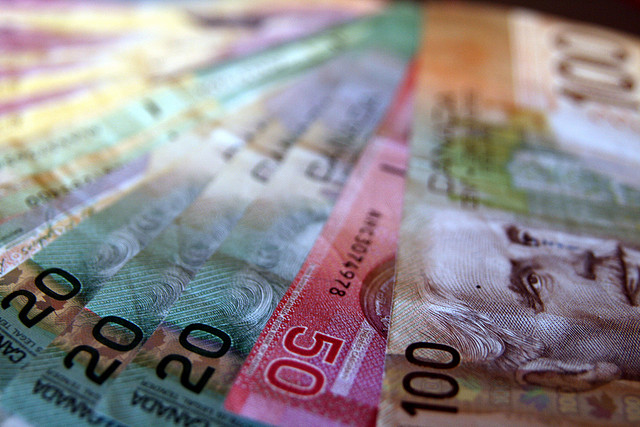Painful cuts to education and health services; widespread labour unrest; illegal street protests… by police officers! All signs indicate that the social costs of the Quebec government’s recent tilt toward austerity will be high.
But what if, apart from the high social costs, the whole economic logic underlying austerity is fundamentally flawed? What if the “cure” just aggravates the disease? Unfortunately it is and it does.
In trying to sell us on the painful route ahead, Premier Philippe Couillard compared Quebec to “a family that has just realized that it’s been spending quite a lot more than its means allowed over recent years and must make the required adjustments.”
In other word: “short term pain for long term gain.”
But an economy is not a household. In an economy, one person’s spending is another one’s income. While an individual household may find it helpful to cut back during lean times, if everyone in the economy cuts back spending (including the government), the level of overall demand falls, simply depressing things further and leaving us all worse off. John Maynard Keynes termed this the “paradox of thrift” in the 1930s.
In a book published last year, The Body Economic: Why Austerity Kills, two public health professionals examined the impacts of austerity on a number of countries. They note, for example, that in Greece — the guinea pig for extreme austerity — the human toll has been devastating, including a 40 per cent rise in infant mortality, a doubling of suicides and a 52 percent rise in HIV infections.
But aside from this horrific social cost, the authors show that austerity is counter-productive even in strictly economic terms. Countries that have increased public spending since the downturn of 2008 have actually fared better in terms of economic growth than countries that have imposed austerity.
As the authors explain, this is at least in part because government spending on useful services can boost the economy by as much as three dollars for every dollar invested. This in turn boosts tax revenues, which can allow an economy to grow its way out of a recession and reduce debt over time.
And this is borne out by the latest government debt data. Under austerity, the debt-to-gross domestic product (GDP) ratios of Greece, the UK and Spain rose by 75 per cent, 100 per cent and 240 per cent respectively between 2008 and 2013. On the other hand, Germany, Sweden and Switzerland rejected austerity and increased public spending after 2008. Germany’s debt-to-GDP level increased by about 25 per cent and has now started to decline. Sweden’s and Switzerland’s levels are actually lower today than in 2008.
So, austerity is really more like “short term pain for long term… maim.”
It therefore makes no sense, based on the real world evidence, for Quebec to try to balance its budget immediately and at all costs through spending cuts. In fact, it will only make things worse. But even if we accept a balanced budget as an immediate goal, there’s something conspicuously absent from most discussion on this topic: the revenue side of the equation.
In a recent call for cuts to social programs and a “deep freeze” on public spending, Yves-Thomas Dorval, Chairman of the Conseil du partonat du Québec (the Quebec employers’ association), cited Norway as a country to emulate. Dorval might want to re-check his stats. Norway actually has among the highest levels of social and public spending in the world, as well as one of the world’s highest taxation levels. A number of other European countries combine high levels of public spending and taxation with modest public debt levels and excellent social outcomes.
And if Quebec chooses to embrace this very successful model, rather than austerity, there’s no shortage of possibilities for raising additional revenue without hitting the average working stiff. The effective taxation rate of the top 1 per cent of Quebec tax filers (average income of $334,000 in 2011) actually fell by about six per cent from the late 1990s to 2011. This represents some $1.2 billion in lost revenue each year. Likewise, reinstating — just for financial institutions — the tax on capital that was abolished in 2011 could mean an additional $600 million in revenue. Actually, the Coalition opposée à la tarification et à la privatisation des services publics (coalition against user fees and privatization) has a handy online list of measures that could raise an extra $10 billion in revenue without punishing the little guy.
Austerity advocates often say that we must cut back public spending to “live within our means.” However, the “means” of a country (at least a wealthy country like ours) is ultimately a matter of political choices regarding the level of public services we wish to enjoy and the appropriate taxes to fund them.
The bottom line is that here is an alternative to austerity — a far more sensible one — and we must press our elected representatives to pursue it.
Rick Goldman is a Montreal lawyer and lecturer in the McGill School of Social Work.
A version of this article first appeared in the Montreal Gazette
Photo: flickr/Duckie Monster



